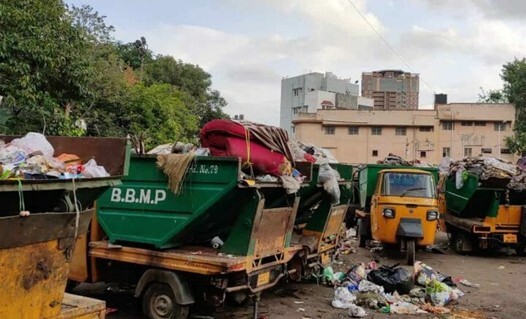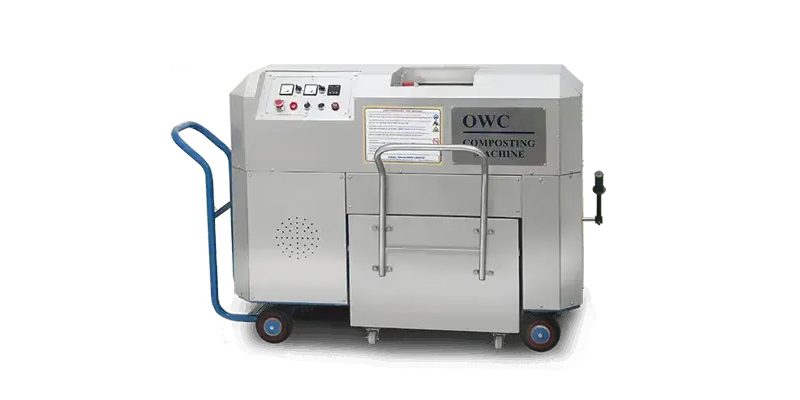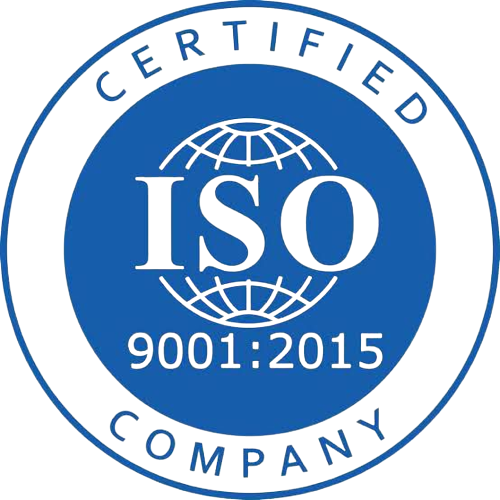
Introduction
The surge in the global population directly correlates with an increase in waste production. This growing volume of waste represents a substantial global management challenge, with solid waste management emerging as a critical aspect of these practices. Its importance is increasingly recognized worldwide due to the considerable environmental impact and potential health issues related to mismanaged waste.
Entities known as Bulk Waste Generators (BWGs) are significant contributors to this waste. These include large residential complexes, secure housing communities, event venues like marriage halls, and sizable commercial facilities. Specifically, any establishment producing more than 100 kilograms of waste each day falls into the BWG category. These entities bear a significant responsibility in the waste management ecosystem.
Therefore, the role of BWGs in waste management is crucial and far-reaching. Not only do they produce a substantial proportion of daily waste, but their practices in handling, segregating, and processing this waste can have a profound impact on overall waste management effectiveness. By implementing effective waste management strategies, these BWGs can help alleviate some of the environmental and health challenges associated with the ever-increasing global waste problem.
The Critical Role of Bulk Waste Generators (BWGs) in Solid Waste Management
Bulk Waste Generators (BWGs), due to the substantial quantities of waste they generate, possess a pronounced influence on our environment. In scenarios where solid waste management is insufficient or ineffective, this waste often finds its way into landfills. Here, the waste decomposes over time, leading to the release of harmful gases, notably methane. Methane, a particularly potent greenhouse gas, has a heat-trapping capacity 25 times greater than that of carbon dioxide, thereby considerably exacerbating the issue of climate change.
Given these circumstances, the role of BWGs in managing solid waste efficiently cannot be overstated. Through proper waste management practices, including waste reduction, segregation, recycling, and composting, BWGs have the potential to significantly decrease the amount of waste that ends up in landfills. This, in turn, can help curb the release of methane and other harmful gases, ultimately contributing to the broader fight against climate change.
In essence, the environmental responsibility that rests on the shoulders of BWGs is immense. Their ability to manage waste effectively and sustainably directly influences our collective environmental footprint and plays a critical role in our global effort to mitigate the adverse effects of climate change
The Benefits and Necessity of In-House Solid Waste Management in BWGs
A practical strategy for efficient waste management is to handle it on-site. By dealing with waste in-house, entities like large apartment complexes can save money and avoid the logistical challenges associated with outsourcing the process.
One such on-site solution is establishing an in-house composting unit. For an average apartment complex with around 100 households, this would necessitate an area of approximately 50 square feet. This entire operation, from waste gathering to processing, can be effectively managed by partnering with organizations that offer Solid Waste Management as a specialised service. This approach not only streamlines the waste management process but also makes it more economical and efficient

Compost machines offer an environmentally friendly alternative to conventional waste disposal methods. By composting organic waste, we prevent it from ending up in landfills where it would produce harmful greenhouse gases. This contributes to the reduction of overall greenhouse gas emissions and promotes sustainable waste management practices.
Challenges in Solid Waste Management and the Need for Effective Solutions
Despite the clear advantages of on-site waste management, Bulk Waste Generators (BWGs) often encounter a variety of hurdles during its implementation. These obstacles can include:
– The difficult task of identifying a competent and reliable vendor to establish the in-house waste management infrastructure.
– The necessity of securing cooperation and active participation from residents, which can be a challenge especially when it comes to proper waste segregation.
– Budgeting for the waste management system can also be a contentious issue among residents. It is essential to perceive waste management not as a project with an immediate return on investment, but as a critical operational expense akin to utilities like water or sewage treatment.
– Arranging for the necessary workforce to manage the waste is another considerable challenge.
These difficulties highlight the need for a shift in perspective, where waste management is seen not as a burdensome cost, but as an essential investment in the community’s health and the environment. To facilitate this, it’s important to promote awareness among residents about the importance of waste management, ensure ongoing support from vendors even after the initial setup, and draw up a detailed budget plan that includes both the costs of setting up the facilities and their ongoing maintenance.
Excel’s Composting Machines: Revolutionising Solid Waste Management
Excel Industries offers a comprehensive solution to in-house waste management with their innovative composting machines. These machines are designed to handle large volumes of waste effectively and efficiently, transforming organic waste into nutrient-rich compost. The composting process not only reduces the amount of waste heading to landfills but also provides a valuable resource that can be used to enrich gardens and green spaces.
The machines from Excel Industries make use of biological processes to accelerate composting, maintaining the vital nutrients in the waste and rendering it free from pathogens and unpleasant smells. This creates a safer and more pleasant environment for the residents and workers involved in waste management.
Overall, these composting machines provide a sustainable and efficient approach to managing waste in large residential complexes and other bulk waste generators. They not only make waste management more manageable but also contribute to broader environmental goals by reducing landfill use and creating a valuable resource from waste.
Case Study: Embracing the Importance of Solid Waste Management with Excel’s Composting Machines
The Himalaya Drugs
The Himalaya Drugs company has managed to turn their waste into a resource using Excel Industries’ Organic Waste Converter (OWC). The company generates about 200-300 kg of wet waste per day, which was previously discarded without any further use. With the implementation of the OWC, this waste is now converted into compost. This compost is then used within the company’s 28-acre campus as manure, aiding in the growth and maintenance of green spaces. This approach to waste management has effectively reduced the amount of waste being sent to landfills while also providing an environmentally-friendly source of nutrients for the company’s landscapes.Infosys, Bangalore
Infosys’ Bangalore campus, with over 20,000 employees, generates almost 1-2 tonnes of food waste per day. By employing Excel’s OWC, this waste is converted into compost at their organic waste conversion site. This successful implementation showcases how large organisations can efficiently manage their food waste, reducing their environmental footprint, and promoting sustainable practices.NIMHANS, Bangalore
At NIMHANS in Bangalore, all organic waste from households, canteens, and hostels is converted into compost using Excel’s OWC. This compost is further used within the campus as manure, demonstrating how institutions can effectively manage their waste, contribute to environmental sustainability, and promote green practices.

Enhancing Solid Waste Management and Effective Odour Control
Bioculum, an innovative product by Excel Industries, is a biological inoculant capable of significantly reducing composting time by enhancing the aerobic decomposition of organic waste. This eco-friendly solution transforms waste into nutrient-dense compost in just 10 days, compared to the usual 30, also reducing the waste volume to 25-30% of the original weight.
Composed of natural ingredients, Bioculum includes a mix of beneficial microbes for efficient organic matter breakdown. Moreover, it’s free of toxic substances and ensures a nutrient-rich, pathogen-free compost that is devoid of unpleasant odors. This groundbreaking product remarkably enhances traditional composting methods with its speed and effectiveness.
Sanitreat, an innovative solution by Excel Industries, is a non-hazardous mixture of mineral and herbal components designed to control the putrefaction process of organic waste, effectively reducing odors. Whether in large Municipal Solid Waste plants, dump yards, disaster management scenarios, or composting processes, Sanitreat can be applied to mitigate unpleasant odors and create a more enjoyable environment.
By combining the use of Bioculum and Sanitreat, the composting process can be made faster, more efficient, and more pleasant, contributing to more effective solid waste management.
Conclusion
Solid waste management is a crucial aspect of maintaining a sustainable and healthy environment, especially for Bulk Waste Generators (BWGs) like large apartment complexes, gated communities, and commercial spaces. It is an ongoing process that requires the active participation of all stakeholders, from residents to waste management vendors and governing bodies
Solutions like Excel’s composting machines, Bioculum, and Sanitreat play a significant role in advancing effective solid waste management practices. They provide safe, efficient, and environmentally friendly means of processing organic waste, thereby reducing the amount of waste that ends up in landfills and contributing to the mitigation of climate change.
While setting up an in-house waste management infrastructure may present challenges, it is a worthy endeavour that promises significant long-term benefits. Not only does it provide a cost-effective way of managing waste, but it also contributes to the creation of a healthier living environment. By leveraging the right tools and fostering a community culture of responsible waste management, BWGs can make a significant contribution to the broader goal of sustainable living.

